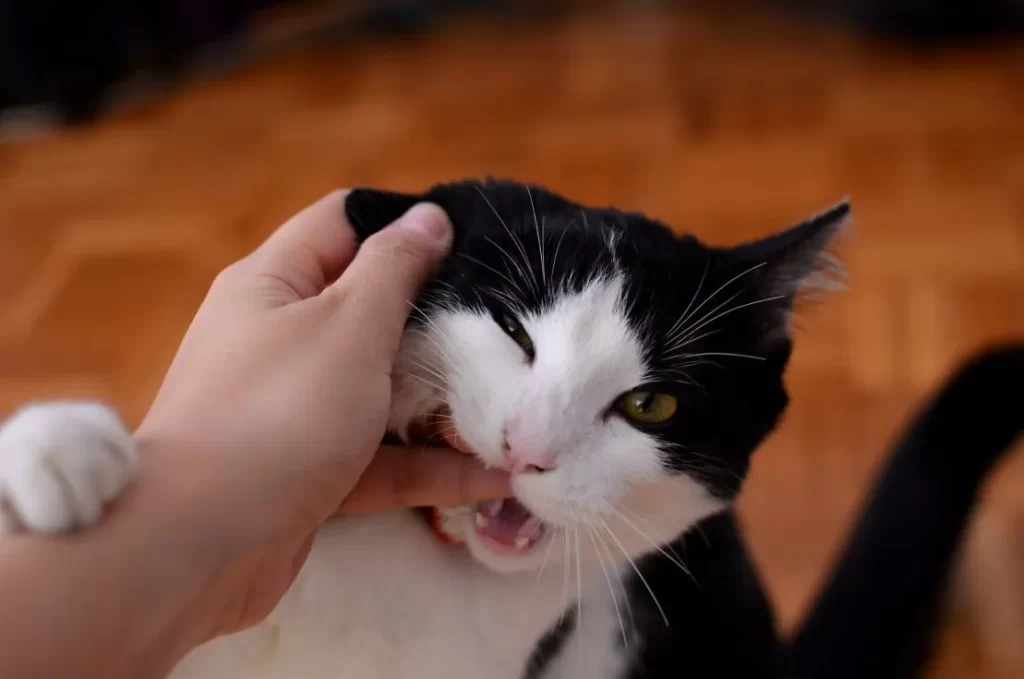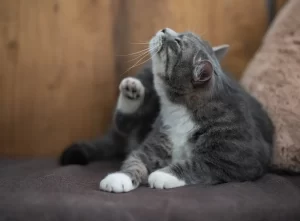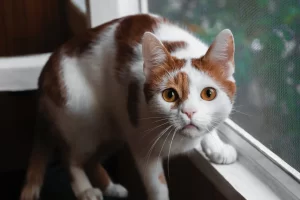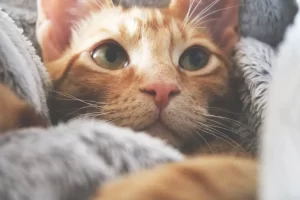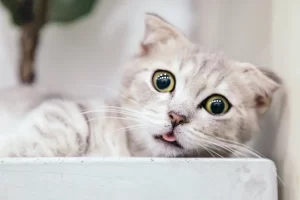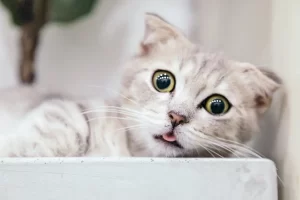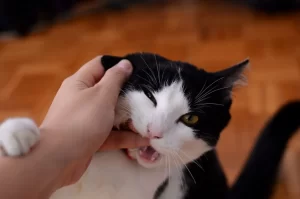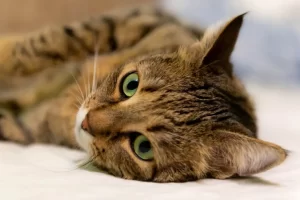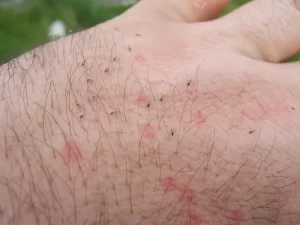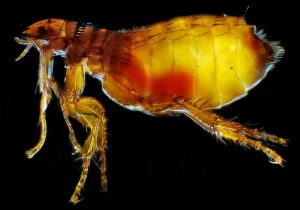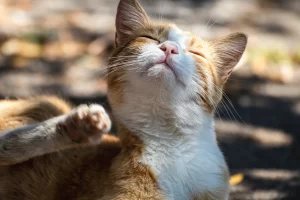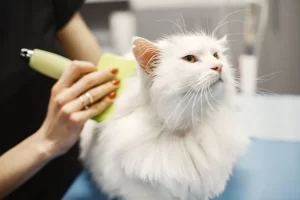Sinus infections in cats are a common issue that can cause discomfort and distress for our feline friends. If left untreated, a sinus infection can lead to serious complications, including eye and brain infections. Fortunately, there are many home remedies and treatments that can help to alleviate the symptoms of sinus infections in cats and improve their quality of life. In this article, we will provide an overview of sinus infections in cats, including symptoms, causes, and treatments, as well as tips for preventing sinus infections and promoting overall feline health.
Table of Contents
ToggleWhat is sinus infection in cats?
A sinus infection, also known as feline sinusitis, is a common condition that affects cats. It occurs when the sinus cavities in the face become inflamed and infected, causing symptoms such as nasal discharge, sneezing, congestion, and facial pain. This condition can be caused by various factors including viral or bacterial infections, allergies, structural abnormalities, or other underlying health issues.
Early diagnosis and treatment are important to prevent complications and reduce the severity of symptoms. Treatment options may include antibiotics to treat any bacterial infections, anti-inflammatory medications to reduce inflammation, and various at-home remedies such as nasal cleaning and steam therapy to relieve congestion and promote sinus health. It is also important to provide proper nutrition, hydration, and a stress-free environment to support your cat’s overall health and well-being. If you suspect your cat has a sinus infection, it is recommended to consult a veterinarian for proper diagnosis and treatment.
Symptoms of sinus infection in cats
The following are the most common symptoms of sinus infection in cats:
- Nasal discharge: Clear, yellow, or green discharge from the nose is a common symptom of a sinus infection.
- Sneezing: Repeated or excessive sneezing can indicate a sinus infection (see useful home remedies).
- Congestion: Cats with sinus infections may experience nasal congestion, making it difficult to breathe through their nose.
- Facial pain: Cats with sinus infections may show signs of discomfort or pain around their face, especially their nose and eyes.
- Loss of appetite: Cats with sinus infections may lose their appetite due to nasal discomfort and difficulty breathing.
- Changes in behavior: Sinus infections can cause changes in a cat’s behavior such as lethargy, irritability, and decreased activity.
- Eye discharge: Eye discharge, particularly a yellow or greenish discharge, can indicate a sinus infection.
- Bad breath: Cats with sinus infections may experience halitosis (bad breath) due to trapped bacteria in the sinuses.
It is important to note that these symptoms can also be caused by other health issues, so it is important to consult a veterinarian for proper diagnosis and treatment.
Causes of sinus infection in cats
The following are the most common causes of sinus infections in cats:
- Bacterial or viral infections: Bacterial and viral infections are the most common causes of sinus infections in cats.
- Allergies: Allergic reactions to environmental triggers such as pollen, dust, or mold can lead to sinus infections in some cats.
- Structural abnormalities: Cats with structural abnormalities of their sinus cavities, such as a deviated septum, are more susceptible to sinus infections.
- Dental disease: Dental disease can lead to sinus infections by spreading bacteria from the mouth to the sinuses.
- Foreign objects: Foreign objects such as grass seeds or sticks that become lodged in the sinus cavity can cause infections.
- Immune system issues: Cats with weakened immune systems are more susceptible to sinus infections.
- Trauma: Trauma to the face can cause damage to the sinus cavities, leading to infections.
Note that sinus infections can have multiple causes, and a veterinary examination is necessary to determine the specific cause of the infection and the best course of treatment.
Treatment options for sinus infection
Treatment options for sinus infections in cats may include the following:
- Antibiotics: If a bacterial infection is suspected, antibiotics may be prescribed to eliminate the infection.
- Anti-inflammatory medications: Anti-inflammatory medications can help reduce inflammation and relieve symptoms associated with sinus infections.
- Nasal cleaning: Regular cleaning of the nasal passages can help clear away mucus and debris and promote sinus health.
- Steam therapy: Steam therapy, using a humidifier or hot shower, can help relieve congestion and improve breathing.
- Essential oils: Some essential oils, such as eucalyptus and tea tree oil, have been used as home remedies to treat sinus infections in cats.
- Surgery: In some cases, surgical intervention may be necessary to address structural abnormalities or remove foreign objects causing the infection.
Consult a veterinarian for proper diagnosis and treatment recommendations. The most effective treatment option may vary depending on the cause and severity of the infection.
Home remedies for sinus infection in cats
Here are 10 home remedies for sinus infections in cats:
- Nasal cleaning: Regular cleaning of the nasal passages can help clear away mucus and debris and promote sinus health. Clean the nasal passages using a saline solution or a mixture of salt and water. Apply the solution to a soft cloth or cotton ball and gently clean the nasal area. Repeat daily as needed.
- Steam therapy: Steam therapy, using a humidifier or hot shower, can help relieve congestion and improve breathing. Place your cat in a room with a humidifier or take them into a bathroom with a hot shower running to provide steam. Allow your cat to inhale the steam for 10-15 minutes. Repeat as needed.
- Essential oils: Some essential oils, such as eucalyptus and tea tree oil, have been used as home remedies to treat sinus infections in cats. Add a few drops of essential oil to a humidifier or diffuser to release the oil into the air. Alternatively, mix a few drops of essential oil with a carrier oil such as coconut oil and apply to your cat’s nose and chest.
- Warm compress: Applying a warm compress to the affected area can help relieve sinus pain and pressure. Soak a clean cloth in warm water and apply to the face for 10-15 minutes. Repeat as needed.
- Hydration: Adequate hydration is important for overall health and can help relieve sinus symptoms. Encourage your cat to drink more water by offering fresh, clean water and moist foods.
- Proper nutrition: A balanced diet with essential nutrients can support your cat’s immune system and help them fight infections. Provide a well-balanced diet with plenty of protein, vitamins, and minerals.
- Allergen control: If your cat has allergies, reducing exposure to allergens can help prevent sinus infections. Keep your home clean and free of dust and mold, and consider using air purifiers or hypoallergenic bedding.
- Stress reduction: Stress can weaken the immune system and make your cat more susceptible to infections. Provide a calm and stress-free environment, and consider using natural remedies such as pheromone sprays or calming supplements.
- Regular exercise: Regular exercise can help boost the immune system and promote overall health. Encourage your cat to engage in physical activity, such as playing or hunting, on a daily basis.
- Regular veterinary check-ups: Regular check-ups with a veterinarian can help prevent and detect health issues early on, including sinus infections. Ensure that your cat receives regular exams and vaccinations. Read more on How often do you take a cat to the vet?
It is important to note that these remedies are not a substitute for veterinary care, and you should always consult a veterinarian if you suspect your cat has a sinus infection. Some remedies may not be appropriate for all cats, especially those with underlying health issues or allergies.
Boosting hydration: A guide to encouraging fluid intake in cats
Encouraging fluid intake is important for cats with sinus infections to help relieve congestion and promote healing. Here are some ways to encourage fluid intake:
- Offer fresh, clean water: Make sure your cat has access to clean, fresh water at all times and consider using a fountain to encourage drinking.
- Offer moist foods: Offer moist, wet food or add water to dry food to increase fluid intake.
- Use flavored water: Try adding a small amount of low-sodium chicken or beef broth to your cat’s water to make it more appealing.
- Offer water-rich treats: Offer water-rich treats such as canned tuna, watermelon, or cucumber.
- Encourage play: Encourage your cat to play and engage in physical activity, which can also increase thirst and fluid intake.
It is important to monitor your cat’s fluid intake and consult with a veterinarian if you have concerns about your cat’s hydration status.
Warm compress therapy
Warm compress therapy can be a helpful home remedy for cats with sinus infections. Here are the steps and instructions for warm compress therapy:
- Gather materials: You will need a clean cloth, warm water, and a bowl or sink.
- Warm the cloth: Soak the cloth in warm water, making sure it is not too hot for your cat’s comfort.
- Apply the compress: Gently squeeze out any excess water from the cloth and apply it to the affected area, typically the face and around the nose and sinuses.
- Hold the compress: Hold the compress in place for 10-15 minutes, allowing your cat to relax and breathe in the warm steam. Repeat as needed.
It is important to monitor your cat’s comfort and reaction to the warm compress and adjust the temperature and duration as needed.
Essential oil therapy for cats with sinus infections
Essential oil therapy can be a helpful home remedy for cats with sinus infections. However, it is important to note that not all essential oils are safe for cats, and it is crucial to consult with a veterinarian before using any essential oils on your cat. Here are some essential oils that may be beneficial for sinus infections in cats and their usage instructions:
- Eucalyptus oil: Eucalyptus oil has antimicrobial and decongestant properties and can help relieve sinus pressure and congestion. Dilute a few drops of eucalyptus oil in a carrier oil such as coconut oil and apply a small amount to your cat’s chest and under its nose.
- Peppermint oil: Peppermint oil has antimicrobial and decongestant properties and can help relieve sinus pressure and congestion. Dilute a few drops of peppermint oil in a carrier oil such as coconut oil and apply a small amount to your cat’s chest and under its nose.
- Tea tree oil: Tea tree oil has antimicrobial properties and can help boost the immune system and fight off infections. Dilute a few drops of tea tree oil in a carrier oil such as coconut oil and apply a small amount to your cat’s chest and under its nose.
It is important to use essential oils sparingly and in diluted form on cats and monitor your cat’s reaction to the oil and adjust the frequency and duration of usage as needed.
Herbal remedies
Herbal remedies can be a helpful home remedies for cats with sinus infections. However, it is important to note that not all herbs are safe for cats and it is crucial to consult with a veterinarian before using any herbal remedies on your cat. Here are some herbs that may be beneficial for sinus infections in cats and their usage instructions:
- Echinacea: Echinacea is an immune-boosting herb that can help fight off infections and promote healing. Offer a small amount of echinacea tincture or supplement to your cat or add to their food.
- Golden Seal: Golden Seal is an antimicrobial herb that can help fight off infections and promote healing. Offer a small amount of golden seal tincture or supplement to your cat or add to their food.
- Licorice root: Licorice root has anti-inflammatory and expectorant properties and can help relieve sinus pressure and congestion. Offer a small amount of licorice root tincture or supplement to your cat or add to their food.
It is important to use herbs sparingly and in accordance with the recommended dosage and to monitor your cat’s reaction to the herb and adjust the frequency and duration of usage as needed.
Over-the-counter remedies for cats with sinus infections
Over-the-counter (OTC) remedies can be a helpful home remedy for cats with sinus infections. However, it is important to note that not all OTC remedies are safe for cats and it is crucial to consult with a veterinarian before using any OTC remedies on your cat. Here are some OTC remedies that may be beneficial for sinus infections in cats and their usage instructions:
- Saline nasal spray: Saline nasal spray can help clear out mucus and congestion from the sinuses. Use a specially formulated saline spray for pets and follow the instructions for usage.
- Decongestant spray: Decongestant sprays can help relieve sinus pressure and congestion. Use a specially formulated decongestant spray for pets and follow the instructions for usage.
- Steam therapy: Steam therapy can help clear out mucus and congestion from the sinuses. Offer your cat a steamy bathroom or use a humidifier in their sleeping area.
Overuse or misuse of OTC remedies can be toxic to cats and cause adverse reactions.
Look for potential complications
It is important to monitor your cat for potential complications if they are suffering from a sinus infection. Some potential complications that can arise from a sinus infection in cats include:
- Spread of infection: The sinus infection can spread to other parts of the body, including the brain, and cause more serious health problems.
- Dehydration: Sinus infections can cause your cat to feel miserable and they may not drink enough water, leading to dehydration.
- Loss of appetite: Sinus infections can cause your cat to feel uncomfortable and they may not eat enough, leading to weight loss and decreased energy levels.
- Secondary infections: Secondary infections can occur when bacteria, viruses, or fungi take advantage of a weakened immune system.
- Anemia: Sinus infections can cause inflammation in the nasal passages and sinuses, leading to a reduced oxygen supply and anemia.
Diets appropriate for a cat with sinus infections
A balanced diet is important for overall health and wellness, including for cats suffering from sinus infections. Here are some dietary tips to help support your cat’s immune system and improve their sinus health:
- Increase fluid intake: Encourage your cat to drink more water by offering fresh water or wet food, or adding chicken or fish broth to their food.
- Add probiotics: Probiotics can help boost the immune system and improve digestive health. Offer your cat a probiotic supplement or add probiotic-rich foods like yogurt or kefir to their diet.
- Include anti-inflammatory foods: Anti-inflammatory foods like fish, flaxseed, and ginger can help reduce inflammation and promote healing.
- Provide plenty of vitamins and minerals: Vitamins and minerals like vitamins A, C, and E, and zinc, can help support the immune system and improve sinus health. Offer your cat a balanced diet with a variety of meat, fish, and vegetables, or provide a supplement.
Prevention of sinus infections in cats
Here are some tips to help prevent sinus infections in cats:
- Boost immunity: Keep your cat’s immune system strong by providing a balanced diet, plenty of exercises, and reducing stress.
- Keep the environment clean: Regularly clean your cat’s living environment, including bedding, toys, and litter boxes to prevent the buildup of allergens and bacteria.
- Avoid exposure to irritants: Keep your cat away from potential irritants such as smoke, dust, and chemicals that can irritate its sinuses.
- Reduce stress: Minimize stress in your cat’s life by providing a safe and comfortable environment and spending quality time with them.
- Regular veterinary check-ups: Regular veterinary check-ups can help detect any potential health problems early and prevent the development of sinus infections.
Importance of avoiding irritants
Avoiding irritants is important for preventing and managing sinus infections in cats. Here is a list of common irritants to be aware of:
- Dust: Dust can contain allergens and bacteria that can irritate your cat’s sinuses and cause an infection.
- Smoke: Smoke from cigarettes, candles, or incense can irritate the sinuses and cause respiratory problems.
- Chemicals: Exposure to chemicals, such as cleaning products, pesticides, or air fresheners, can irritate your cat’s sinuses and lead to an infection.
- Mold: Mold can grow in damp environments and can cause allergic reactions and respiratory problems.
- Second-hand smoke: Second-hand smoke can irritate your cat’s sinuses and cause respiratory problems.
- Pollen: Pollen from plants can cause allergic reactions and respiratory problems.
It is important to avoid exposing your cat to these irritants to minimize the risk of developing a sinus infection and to maintain overall respiratory health.
Supplementation with vitamins and minerals
Supplementation with vitamins and minerals can help support your cat’s immune system and prevent sinus infections. Here are some common vitamins and minerals that are important for respiratory health:
- Vitamin C: Vitamin C is an antioxidant that helps boost the immune system and reduce inflammation.
- Vitamin E: Vitamin E is an antioxidant that helps reduce inflammation and improve respiratory function.
- Zinc: Zinc is important for immune function and can help prevent infections.
- Omega-3 fatty acids: Omega-3 fatty acids can help reduce inflammation and improve respiratory function.
- Vitamin A: Vitamin A is important for immune function and can help prevent infections.
Proper cat nose and sinus cleaning techniques
Proper cleaning of the nose and sinuses can help clear out mucus, bacteria, and other irritants, and can be a helpful part of managing sinus infections in cats. Here are some techniques to consider:
- Saline Solution: Saline solution can help clean out the nose and sinuses by breaking up mucus and removing irritants. To use, mix a small amount of saline solution with water and use a soft, clean cloth to gently wipe the inside of your cat’s nose.
- Steam Therapy: Steam therapy can help clear out the sinuses by loosening mucus and opening up the airways. To use, place your cat in a room with a hot shower running or use a humidifier to create a steamy environment.
- Nasal Irrigation: Nasal irrigation involves flushing the nose and sinuses with saline solution to remove irritants and mucus. To use, mix a saline solution with water and use a syringe or squeeze bottle to gently flush the inside of your cat’s nose.
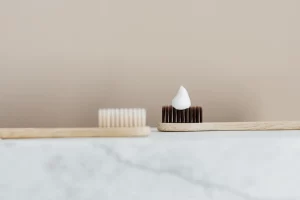
Proper dental hygiene can help with a sinus infection
Proper dental hygiene is important for overall health, including respiratory health. Bacteria in the mouth can travel to the sinuses and cause infections, so it’s important to maintain good dental hygiene to prevent sinus infections in cats. Here are some steps to consider:
- Brush your cat’s teeth regularly: Regular brushing helps remove plaque and bacteria from the teeth and gums.
- Offer dental chews and toys: Dental chews and toys can help scrape plaque from the teeth and freshen breath.
- Schedule regular dental cleanings: Regular dental cleanings under anesthesia can help remove plaque and tartar that brushing and chewing alone cannot remove.
- Feed a balanced diet: A balanced diet can help maintain good oral health and prevent gum disease and other dental problems.
- Provide plenty of water: Water helps wash away bacteria in the mouth, reducing the risk of infection.
Which vet to visit with what expertise
If your cat is suffering from a sinus infection, it’s best to see a veterinarian with expertise in feline medicine. Some common types of veterinarians that you may see for a sinus infection in your cat include:
- General Practitioners: General practitioners are trained in all areas of veterinary medicine, including feline health, and can diagnose and treat a variety of conditions, including sinus infections.
- Feline Specialists: Feline specialists are veterinarians who have completed additional training and certification in feline medicine and surgery. They have a deeper understanding of feline anatomy, physiology, and diseases and can provide more specialized care for your cat.
- Internists: Internists are veterinarians who specialize in the diagnosis and treatment of internal medicine conditions, including sinus infections.
- Ophthalmologists: Ophthalmologists are veterinarians who specialize in eye conditions, and can help diagnose and treat sinus infections that are causing eye symptoms, such as discharge or swelling.
It is always a good idea to speak with your regular veterinarian to determine the best course of action for your cat’s specific needs and situation. They may refer you to a specialist if necessary.
Is sinus infection contagious?
Sinus infections in cats are not usually contagious from one cat to another. However, underlying causes of sinus infections, such as viral or fungal infections, may be contagious and spread from one cat to another.
It is important to keep your cat isolated if they have a contagious condition to prevent it from spreading to other cats in your household or to other cats you may come into contact with.

